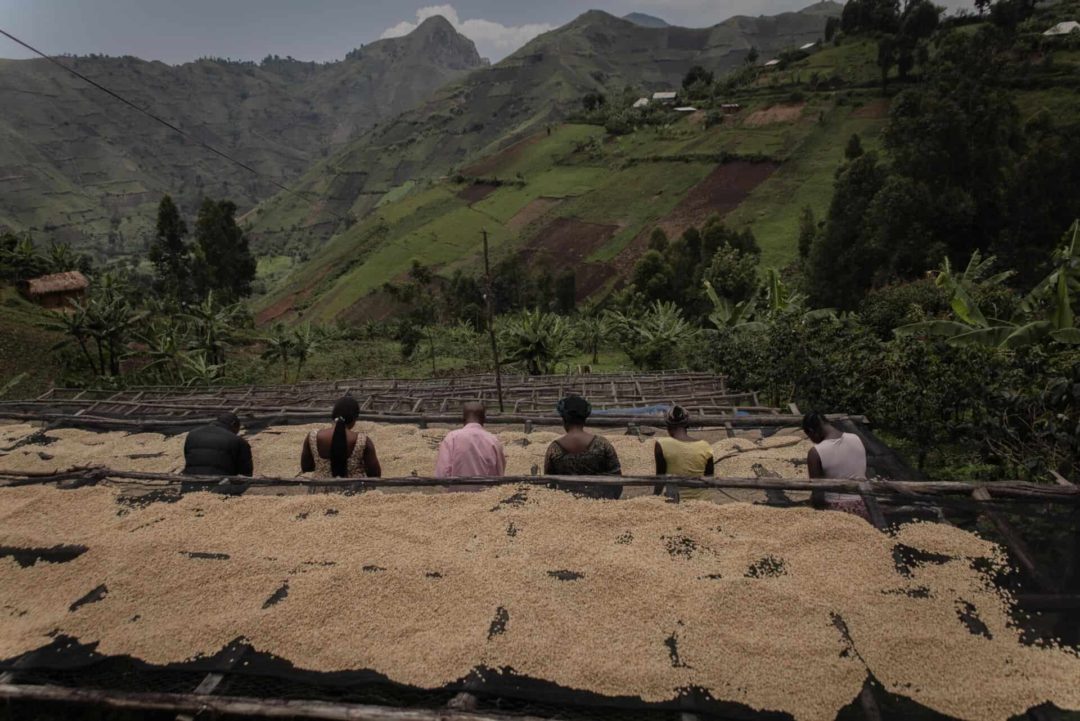Guillaume Le Cunff, CEO of Nespresso, said: “We’re incredibly proud to be joining this partnership to breathe new life into the region’s coffee industries and communities, which will foster vital economic growth while preserving local ecosystems in Kivu. Through our Reviving Origins program, we have been working to successfully revitalize production in several challenged coffee producing regions around the world since 2019, and we’re excited about the important projects underway in the Democratic Republic of the Congo. We strongly believe that coffee can be a force for good, because it can help to shape communities and preserve landscapes, leaving a positive impact on the lives of people and nature.”
The eastern DRC has seen years of economic and political turmoil, according to a press release, and between the political unrest, population growth, and the absence of sustainable economic opportunities in the area, the local Kahuzi-Biega National Park—a UNESCO World Heritage Site, one of the few remaining habitats of the world’s 6,800 remaining Grauer’s gorillas—has been suffering from illegal logging, poaching, and mining.
Looking to address this issue, The Gorilla Coffee Alliance was launched by the United States Agency for International Development (USAID); Nespresso; Olam Food Ingredients; international nonprofits TechnoServe and the Wildlife Conservation Society; and Congolese social enterprise Asili.
“USAID’s launch of the Gorilla Coffee Alliance is a critical milestone for the U.S. Government’s partnership with the Congolese people and the product of over a decade of USAID’s investment in working alongside Congolese farmers to replant coffee trees in a conflict-ravaged region,” said USAID DRC Mission Director Paul Sabatine. “Revitalizing DRC’s coffee sector makes me proud to coinvest alongside Nespresso and OFI, particularly given our common desire to promote sustainable livelihoods by protecting Congo’s wildlife and natural resources.”
Over the course of five years, this initiative will partner with 8,500 farming households to improve their coffee production and sales, and reduce poaching and deforestation around Kahuzi-Biega National Park.
Helping local families to establish environmentally sustainable ways to earn income, improving access to essential health services, and working with community institutions to become advocates for conserving the national park will hopefully help all involved. The Alliance aims, specifically, to improve total farm productivity to support farmer revenues, and to protect long-term soil health and biodiversity. It will work to build the entrepreneurial skills of young and Indigenous people, in non-farming households as well as farming households, so they can start environmentally sustainable businesses. The Alliance will train families to enable them to improve their nutritional status and financial literacy, and to plant kitchen gardens. Through the Asili platform, it will improve access to health clinics and clean water points. And it will help to mobilize existing community governance structures to support conservation and combat poaching, logging, and mining.
Related: ECRM’S Virtual Coffee, Tea, and Cocoa, Winter Program: 8 Trends to Watch Whole Foods Market Launches Program in Support of Responsible Sourcing Land to Market Partners with Regenerative Chilean Beef Farmer
“The greatest force for conservation is a local community that is invested in protecting its natural resources,” said TechnoServe CEO and President William Warshauer. “We are excited to join these extraordinary partners and apply TechnoServe’s long experience supporting coffee-growing communities to help the people of the Kahuzi-Biega National Park area create healthy communities, sustainable economies, and a flourishing ecosystem.”South Kivu’s climate is well-suited for growing high-quality coffee, and its sales have increased in recent years—but in the area around the Park, farmers struggle to access the training, high-quality seedlings, and shade trees necessary to improve production, and many local coffee washing stations do not have the capacity or technical ability to adequately process coffee.
Vivek Verma, Managing Director and CEO of the OFI coffee business, said: “This ambitious alliance will be a real game changer for a region that has faced conflict, poverty, and natural disaster. Building on years of close collaboration with local farmers, we will help Kivu to build its reputation for exceptional coffee and make a real difference to long-term farmer revenues. But our vision goes far beyond coffee. With the help of our partners, we will bring innovation to local farming systems, helping to improve lives and livelihoods, regenerate soils, and protect precious biodiversity in the world’s second-largest tropical forest. And using the sustainability insights platform, AtSource, we will be able to monitor the progress we are making towards the desired social and environmental impact.”
Deo Deo Kujirakwinja, WCS DRC Technical Director, said: “Engaging the community surrounding Kahuzi-Biega National Park is critical to protecting Grauer’s gorillas. The Gorilla Coffee Alliance will help ensure a future for these great apes, which are a key part of the Democratic Republic of Congo’s natural heritage.”









